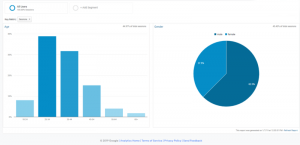— January 16, 2019
Although tax season may seem too far away to worry about right now, there’s no better time for you to start looking for a tax accountant. Hiring a tax accountant can make paying your taxes much less stressful and they’ll certainly be able to help you hold onto every dollar you are entitled to.
However, finding a good tax accountant isn’t always easy. Because you are trusting some of your most personal and important information with them, your tax accountant needs to meet the highest standards. Plus, you need someone you can work well with and look to for guidance about your finances. To ensure the best fit, asking friends and family for referrals can be your best resource.
Here are a few tips on how to choose the right accountant.
Figure Out What Kind of Accountant You Need
You won’t find the right accountant if you aren’t even sure who you are looking for. It’s important to figure out what kind of accountant you need before you begin your search. Unless you only use an accountant once per year for simple income taxes, you’ll certainly benefit from working with a knowledgeable accountant who has your best interest at heart.
Here are some questions that might help you narrow down what kind of accountant you need:
- Do you just need an accountant once per year for taxes?
- Are you dealing with some complicated income situations like rental properties or an inheritance?
- Do you want to start investing?
- Are you self-employed?
- Do you own a small business and need someone with experience in that arena?
- Do you understand the new tax regulations?
- How much do you know about finances and taxes on your own?
- Do you need a lot of help understanding your finances?
- Would you like financial and tax advice going forward?
Some people don’t need to hire an accountant if they have a very simple income structure and file simple income taxes once per year. However, if your tax situation is complicated at all, you are self-employed, you are not financially educated, you simply don’t have the time, you are being audited, or your income is into six figures, hiring an accountant will ensure your taxes are accurate and your stress levels are low.
Learn About the Different Types of Accountants
Like most professions, accounting has different areas of specialization. Some accountants welcome people with individual income tax accounts, while others don’t really deal with that. Just as you wouldn’t go to a foot doctor for a vision problem, you also wouldn’t go to an accountant that didn’t specialize in helping people with their finances and their taxes.
There are some significant differences between the different types of tax accountants. The three most common types of accountants that help people like you with taxes are Certified Public Accountants, Enrolled Agents and tax attorneys.
Certified Public Accountants: They have passed a CPA exam and must be licensed by your state. There are many CPAs that do tax accounting, but not all of them do, so be sure to check on that. If you are dealing with an audit or working out payment arrangements with the IRS, a CPA can represent you.
Enrolled Agents: They have also passed rigid testing and background checks as performed by the IRS. An EA specializes in complicated tax situations and they can also represent you if you have an IRS audit or you need to make payments on current or back taxes.
Tax attorneys: They have degrees in taxation as well as law and are attorneys that specialize in taxes. If your tax situation is very complex and involves significant legal matters, a tax attorney can guide you through it.
Other types of accountants include auditors, financial advisors, and accounting consultants, but these are specialty areas and rarely deal with individual income tax issues. The tax accountant you use should have training and experience in the areas of your finances that affect you most.
Locating and Interviewing Tax Accountants
The first place to start when looking for a tax accountant is to ask others. References and recommendations are invaluable because they represent first-hand experiences. Consult with people you respect and trust to make a short list of professionals you want to meet with.
Asking good questions at the initial meeting will help you find someone who is both experienced and reputable. First, you’ll want to review their background and credentials. It’s important to confirm that a tax professional is compliant with federal and state regulations. You also want to get a glimpse of how they do business and how they treat their clients.
This is also a good time to see how you get along with each other and how you feel about them personally. Knowing what questions to ask will help you understand whether the tax accountant has a good reputation or whether it’s time to move on.
Here are a few questions you can ask a tax accountant that will reveal their qualifications and business practices to you:
- How long have you been in business?
- What are your areas of specialization?
- Who are your typical clients?
- What licensing have you earned?
- Are you a member of any national accounting organizations?
- What is your experience in dealing with the IRS?
- Will you do this work or do you outsource to third parties?
- Can you tell me about your privacy and confidentiality policies?
- How does your firm bill their clients?
- What tax programs and software do you use?
- Are you available all year or do you close after tax season?
- How do you like to communicate with clients about their tax issues?
After the interview with the tax accountant, you can take one final step and run a background check on them. Your state manages a board of accountancy that will let you know about someone’s licensing status and whether any complaints or professional discipline has taken place for that member. It’s important for you to be as thorough as you can so there are no surprises for you later and you can proceed with confidence in their training and abilities.
Building on Trust and Expertise
Once the tax accountant of your choice has met your standards, you can feel comfortable in starting your professional relationship with them. Not only have you found a tax accountant who is competent and experienced but who works well with you and makes you feel as if your financial health is as good as can be. As tax laws continue to change and your financial situation sees the typical ups and downs of life, you can enjoy peace of mind knowing that you have someone you can rely on and trust to watch out for you.
Business & Finance Articles on Business 2 Community
(36)


